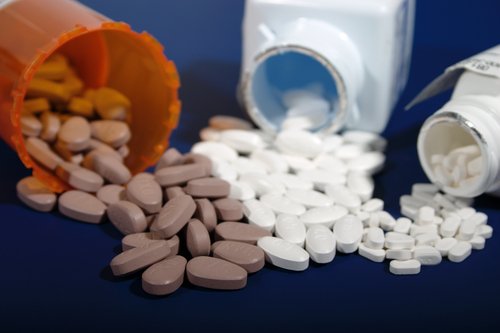Long-term use of statins can benefit bronchiectasis patients with chronic Pseudomonas aeruginosa pulmonary infection by improving their systemic inflammatory status and their quality of life, according to a study published recently at the journal Chest.
Statins have been used widely for the treatment of cardiovascular diseases. More recent studies have demonstrated their therapeutic effects can be much broader, including immune system regulatory activity and anti-inflammatory properties. However, the statins’ mechanism of actions in these newer known activities is still not fully understood.
Previous results showed that daily use of a commercially available statin, Lipitor (atorvastatin), from Pfizer, in patients with severe bronchiectasis reduced cough, enhanced sputum neutrophil apoptosis, and reduced blood levels of CXCL8, which are all clear signs of inflammation resolution.
In the study “A randomised control trial of atorvastatin in bronchiectasis patients infected with Pseudomonas aeruginosa – a proof of concept study,” researchers tested the therapeutic benefits of long-term statins use in individuals with severe bronchiectasis and chronically infected with P. aeruginosa.
This Phase 4 clinical trial (NCT01299194) included 32 patients who received a once-daily 80 mg dose of Lipitor, or a placebo control for three months. After this period, the patients underwent a washout period for six weeks, and then were crossed over to receive the alternative therapy, Lipitor or placebo, for an additional three months.
Researchers found that statin treatment did not improve significantly the clinical features of bronchiectasis, including the cough experienced by the patients. Yet, those receiving Lipitor showed significant improvements in the mean score of St. George’s Respiratory Questionnaire (SGRQ), which is used as a measure of the health-related quality of life, compared to the placebo-treated group.
In addition, Lipitor was found to improve several biomarkers of inflammation, such as CXCL8, ICAM1, and TNF, and a tendency to reduce the number of immune cells called neutrophils (a type of white blood cell that the body uses to fight infections), and C-reactive protein (CRP) levels in the blood, indicative of reduced inflammatory response.
Treatment also was found to significantly reduce the number of patients with pulmonary bacterial colonization compared to placebo. However, no significant change in mean bacterial load was observed.
Additional in vitro tests showed that Lipitor anti-inflammatory effects were due to inhibition of neutrophils activation and adhesion.
“Our current study didn’t show statistical evidence to achieving its primary end point, cough reduction. However, treatment did improve reported quality of life and significantly reduce systemic inflammation,” the authors wrote.
“This study confirms the efficacy of atorvastatin as an anti-inflammatory agent in this clinical population and justifies larger multi-centre studies,” the team added.

